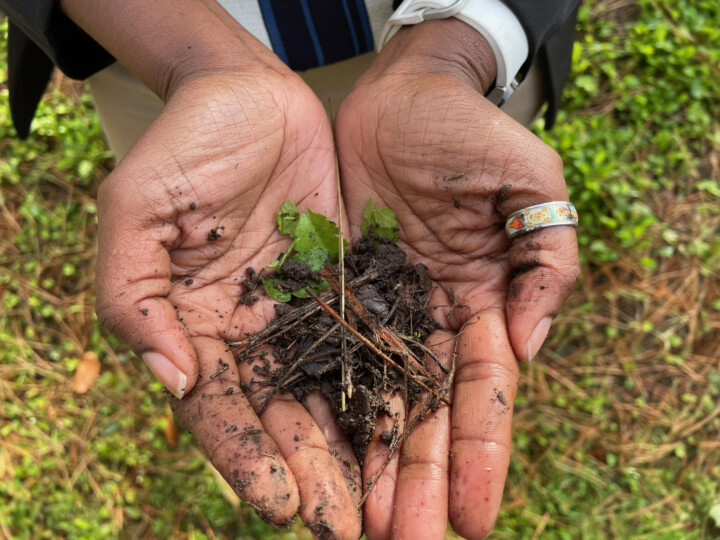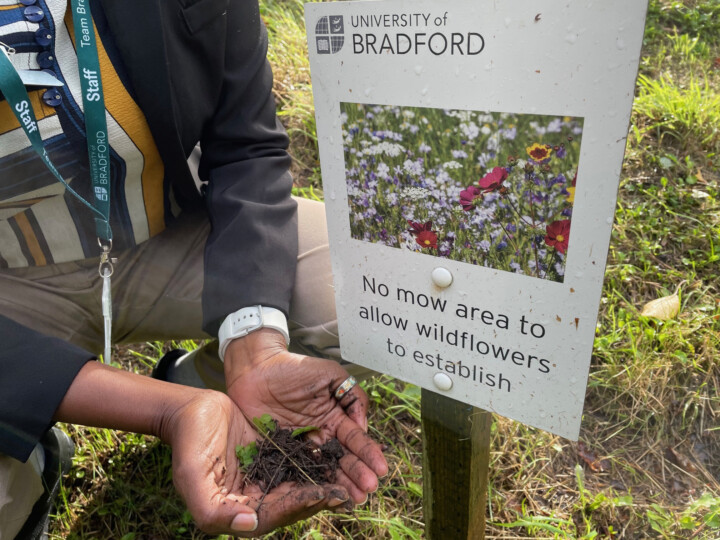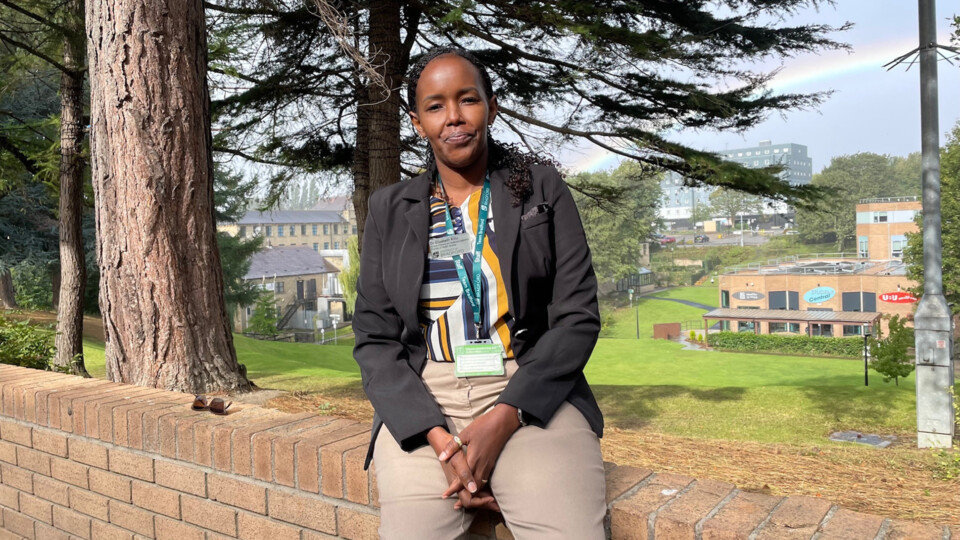Grab five muddy minutes for health boost
A University of Bradford academic is calling on people to embrace nature and spend five minutes in the mud, revealing our gut microbes – affectionately dubbed ‘belly bugs’ – thrive when we do.
Dr Elizabeth Kiilu, Assistant Professor of Public Health at the University, said: “Your belly is full of friendly microbes – and they’re begging you to go outside.
“When you touch soil, hug trees, or walk barefoot, your gut microbiome throws a celebration that boosts your mood, immune system, and brain.”
Microbes, mood and mud
The human body is home to trillions of microorganisms, bacteria, fungi, viruses, that form the microbiome, a vital ecosystem that influences everything from digestion to mental health.
According to Dr Kiilu, exposure to natural environments can dramatically improve microbial diversity, which in turn supports immunity, reduces inflammation, and even helps with better digestion.
One standout microbe, Mycobacterium vaccae, found in soil, has been linked to reduced anxiety and improved emotional resilience.

Brits have been urged to enjoy five minutes in the mud. Images credit: University of Bradford
Urban living, sanitised lives
But modern lifestyles are threatening this microbial harmony. Overuse of antibacterial products, processed foods, and limited access to green spaces are contributing to a decline in microbial diversity – potentially increasing risks of allergies, autoimmune diseases and depression.
Dr Kiilu said: “We’re raising generations in sterile environments.
“Our immune systems need microbial training. A little dirt can go a long way.”
Nature as medicine
Dr Kiilu’s advice is refreshingly simple:
- Let children play in dirt
- Eat more plants and fermented foods
- Spend time in nature
- Support urban rewilding and green spaces
She added: “Over time, the diverse nature of our microbiomes has been lost, mainly due to reduced interaction with natural environments, changes in our diets, and shifts in lifestyle.
“Even short walks in parks or gardening can shift the gut microbiome within hours.”

Touching soil boosts your mood, says Dr Kiilu. Images credit: University of Bradford
Ethnic-minority and pregnant women
Dr Kiilu added ethnic-minority women often shoulder long hours, shift work, caregiving, and tight finances, leaving little time for parks or gardens, places where our ‘belly bugs’, the friendly microbes that protect health, truly thrive.
She says pregnancy is pivotal, as a mother’s gut, skin, and vaginal microbiomes seed her baby’s first microbes. When stress, poor diet, pollution, or limited nature contact shrink maternal microbial diversity, infants begin life with fewer helpful microbes, raising risks for immune, metabolic, and even mental-health issues.
Dr Kiilu urges everyone, particularly expectant mothers, to grab five muddy minutes outdoors. She said: “Even brief contact with soil, plants, or trees can help your microbes thrive, supporting both you and your baby.
She added: “We acquire our microbiomes from our mothers. So, if our mothers have weakened microbiomes, these weaker microbiomes are also passed on to us.”
Greener means healthier
With cities like Baltimore rewilding urban spaces for public health, Dr Kiilu hopes UK communities will follow suit.
She said: “Greener communities mean healthier people. It’s time we stopped fearing dirt and started embracing it.”
Dr Kiilu’s message supports the University of Bradford’s strategy by promoting healthier communities through research that makes a real difference. Her work encourages people to connect with nature to improve their gut health, especially helping those in disadvantaged groups. This fits with the University’s goals to tackle inequality, support wellbeing, and create positive change through science and public engagement.
Different is what we do
UNACHIEVABLE – we’re improving health outcomes
Dr Kiilu’s work emphasising nature-based health interventions, maternal and infant wellbeing, and addressing inequalities faced by ethnic-minority women reflects the University’s commitment to making the unachievable achievable through inclusive research, public health innovation, and community engagement. Find out more on our website

